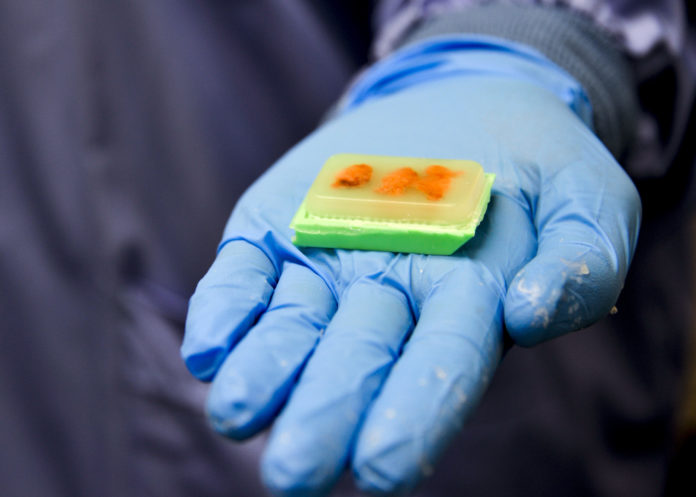New drug called Givosiran reduced the number of acute attacks in porphyria patients by up to 79 percent
Acute porphyria is a group of uncommon diseases that can cause severe, potentially life-threatening attacks of abdominal pain, nausea, vomiting and paralysis. Liver transplantation is currently the only effective treatment available for the most seriously afflicted patients. A clinical trial published in The New England Journal of Medicine shows that a new drug candidate can prevent attacks in these patients.
Porphyria is caused by different genetically inherited disorders in the synthesis of heme, the oxygen-binding component of red blood cells. Heme is also necessary for the metabolism of certain drugs and hormones by the liver. When the liver is unable to synthesise heme properly, toxic substances called porphyrin metabolites accumulate in the body, resulting in acute porphyria attacks. A small group of porphyria patients suffer recurrent acute attacks, which cause them chronic debilitating symptoms requiring constant hospital care.
Porphyria is caused by different genetically inherited disorders in the synthesis of heme, the oxygen-binding component of red blood cells. Heme is also necessary for the metabolism of certain drugs and hormones by the liver
Acute intermittent porphyria (AIP) is the most common form of acute porphyria. Patients suffering from acute attacks are treated using an infusion containing a form of heme called hemin, which suppresses the formation of the toxic metabolites.
“Hemin has saved the lives of many patients and will continue to be important, but it’s only for acute treatment,” says the study’s lead author Eliane Sardh, researcher at the Department of Molecular Medicine and Surgery, Karolinska Institutet, and consultant at Karolinska University Hospital.
However, the new drug candidate givosiran, developed by Alnylam Pharmaceuticals, has shown promising results in a clinical phase I study in 40 patients.
The administration of givosiran reduced the number of acute attacks in the patients by up to 79 percent, and the need for hemin decreased by up to 83 percent. Most of the reported side effects were mild or moderate.
“Givosiran down-regulates ALAS1, the key regulator of the hepatic heme synthesis pathway, which reduces the toxic metabolites without the use of hemin,” says Dr Sardh. “It also has a lasting effect of at least one month, which gives us an effective means of preventing acute attacks in seriously afflicted porphyria patients who have limited treatment options.”
The complete results from the phase III study in 94 patients from around the world are expected in the spring of 2019 and the drug may be available by early 2020.


